Scuba diving carries a certain amount of risk, especially without proper training. To ensure you don’t dive outside of your abilities, there are PADI diving restrictions for each certification level.
Whether you’re participating in the Bubblemaker program, taking the PADI Open Water Diver course, or you’re doing your Instructor Development Course (IDC), there are various restrictions in place, from depth restrictions to restrictions on whom you can dive with. Keep reading to find out the restrictions on your current level and where you can go with the next level of certification.
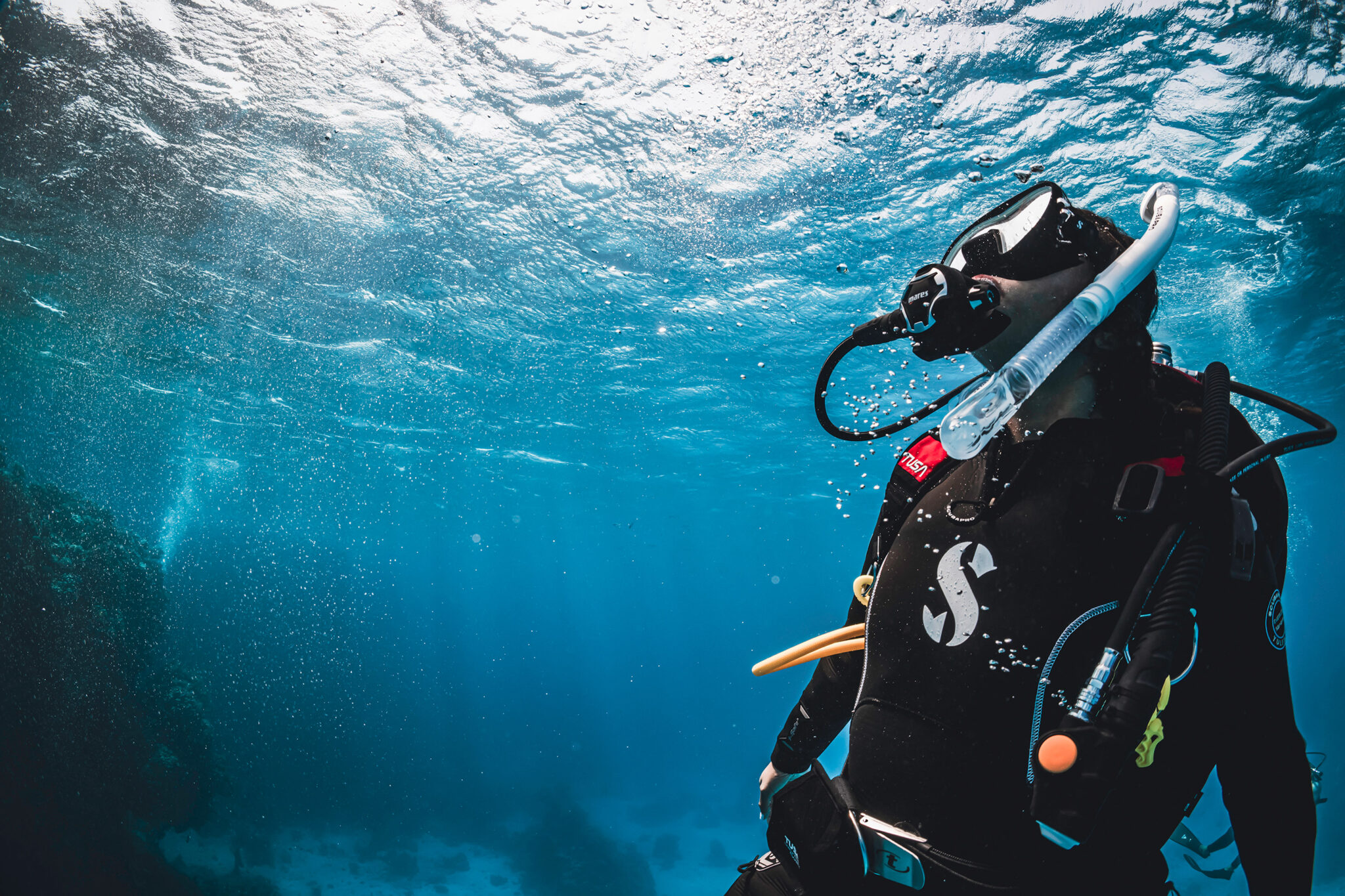
Although each diving certification has depth and/or other restrictions, these are some good general guidelines for the entire diving community to follow:
Never dive alone Only dive within your limits (certification level) Don’t dive under the influence Always plan your dive, always dive your planBy following these simple diving guidelines, scuba divers can decrease the risk associated with scuba diving and set themselves up for a successful dive.
Listed below are many of the PADI programs and certification courses alongside the limits or restrictions on each level.
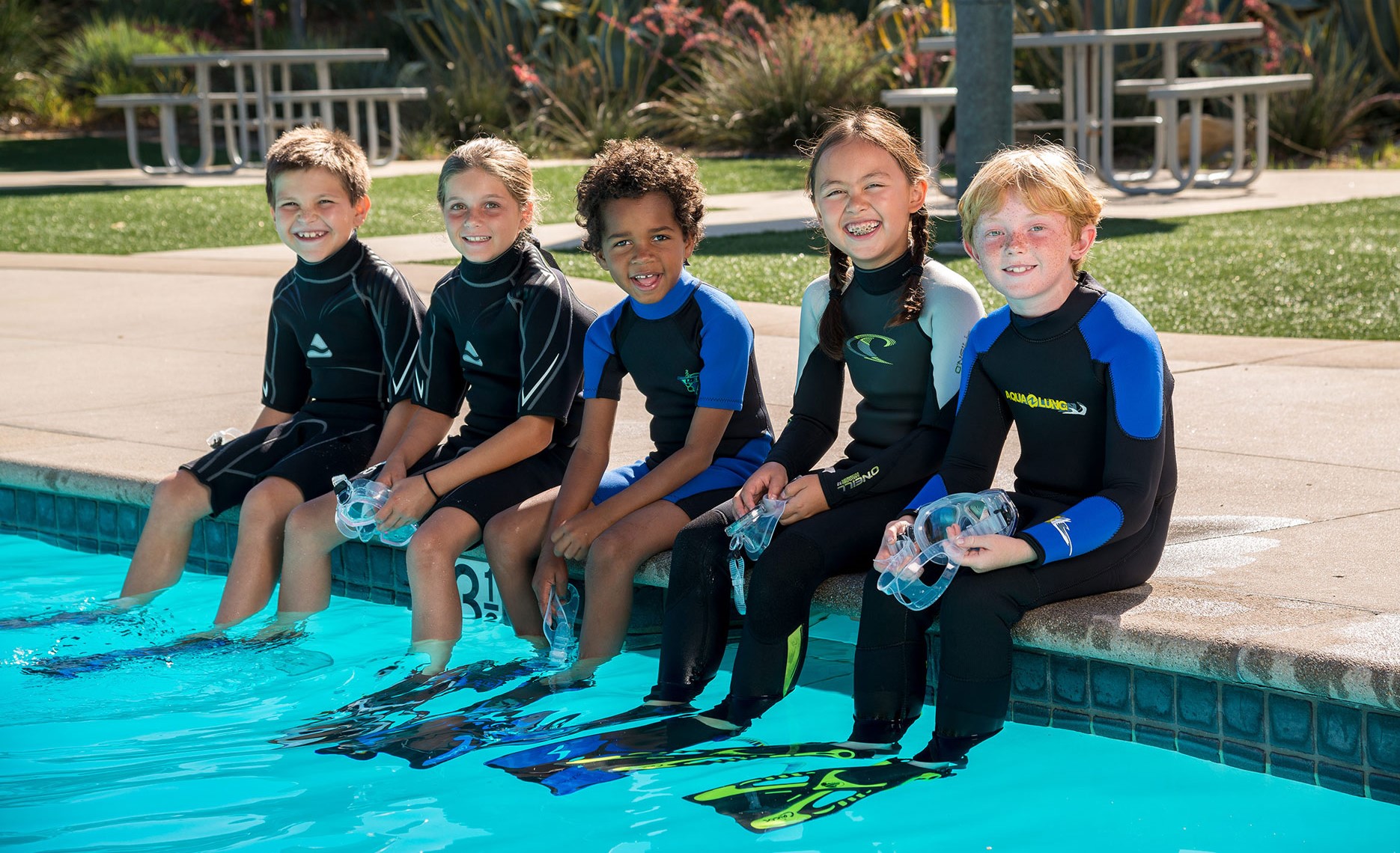
The PADI Bubblemaker program is an experience for little ones showing interest in scuba diving. This course is used to introduce children to the sport in a controlled environment.
Prerequisites
Minimum Age: 8 years old Participant must be comfortable in the waterPost-Completion Restrictions
Max Depth: 6 feet (2 meters) during the experience Not allowed to scuba dive following the completion of the experienceRead More About the Bubblemaker Program
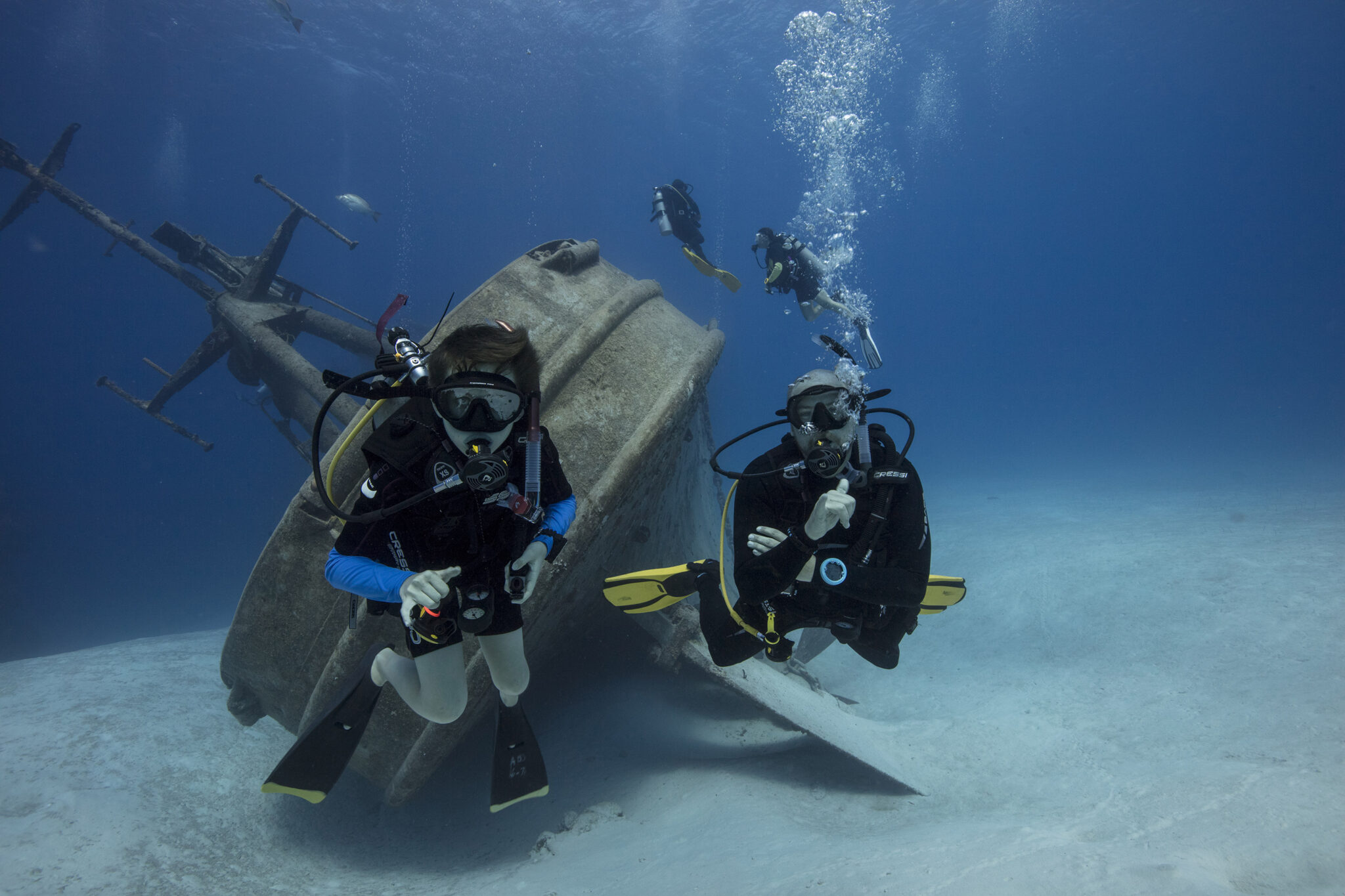
The Junior Open Water Diver course was made to get younger people in the water to master the necessary skills and become a scuba diver.
Prerequisites
Minimum Age: 10 years old Must be able to float or tread water without aids for 10 minutes Must be able to swim 200 meters/yards with no aids or 300 meters/yards with mask, fins and snorkelPost-Completion Restrictions
For divers ages 10 or 11
Must dive with a PADI Professional or certified parent or guardian Max Depth: 40 feet (12 meters)For divers ages 12 to 14
Must dive with a certified adult Max Depth: 60 feet (18 meters)Read More About the Junior Open Water Diver Course
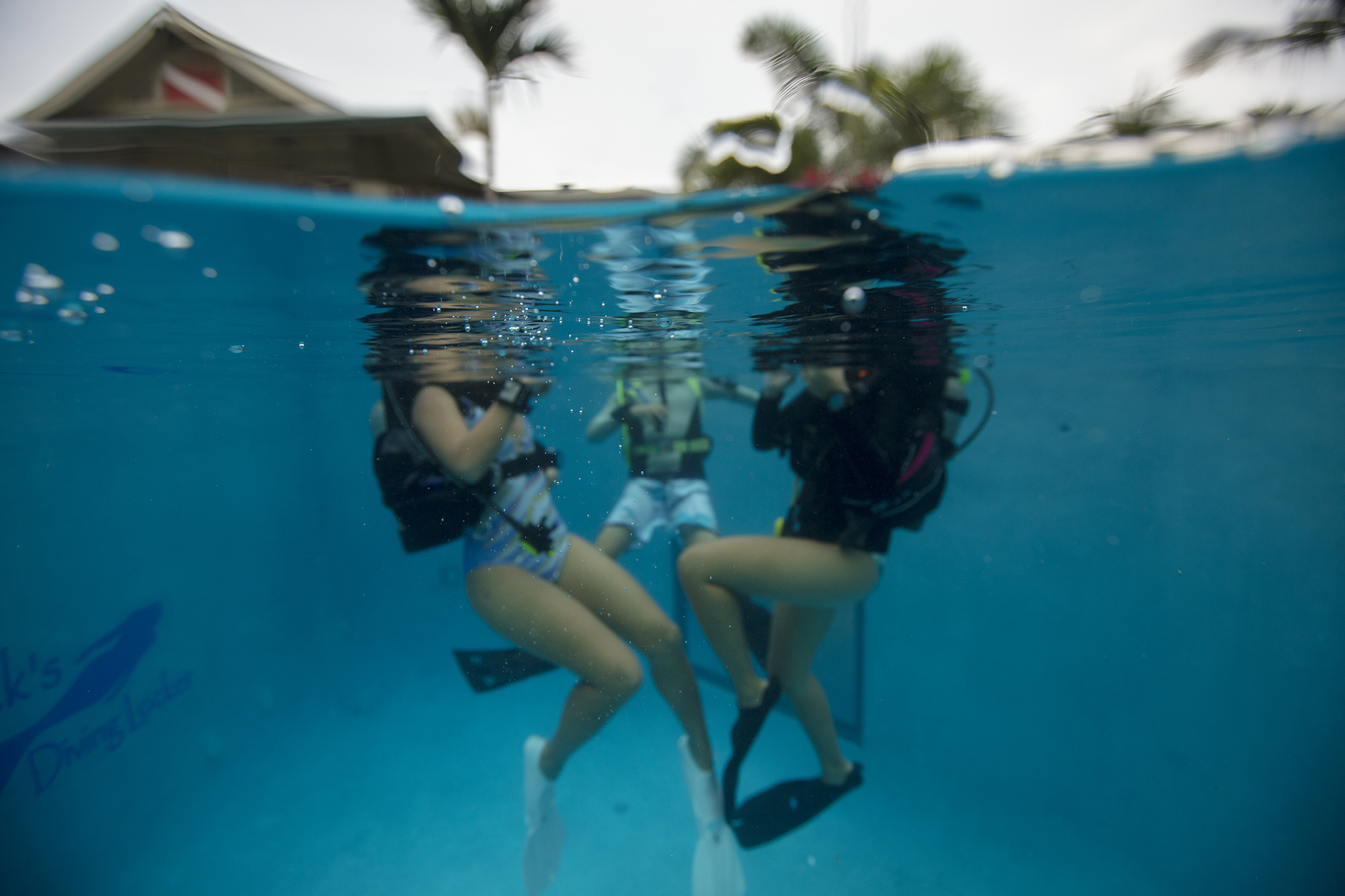
Get a taste of the scuba diving life with a Discover Scuba® Diving (DSD) experience. While not a certification course, this one-day experience helps participants take their first breaths underwater.
Prerequisites
Minimum Age: 10 years oldPost-Completion Restrictions
Maximum Depth: 40 feet (12 meters) Not allowed to scuba dive following the completion of the experienceRead More About the Discover Scuba Diving Experience
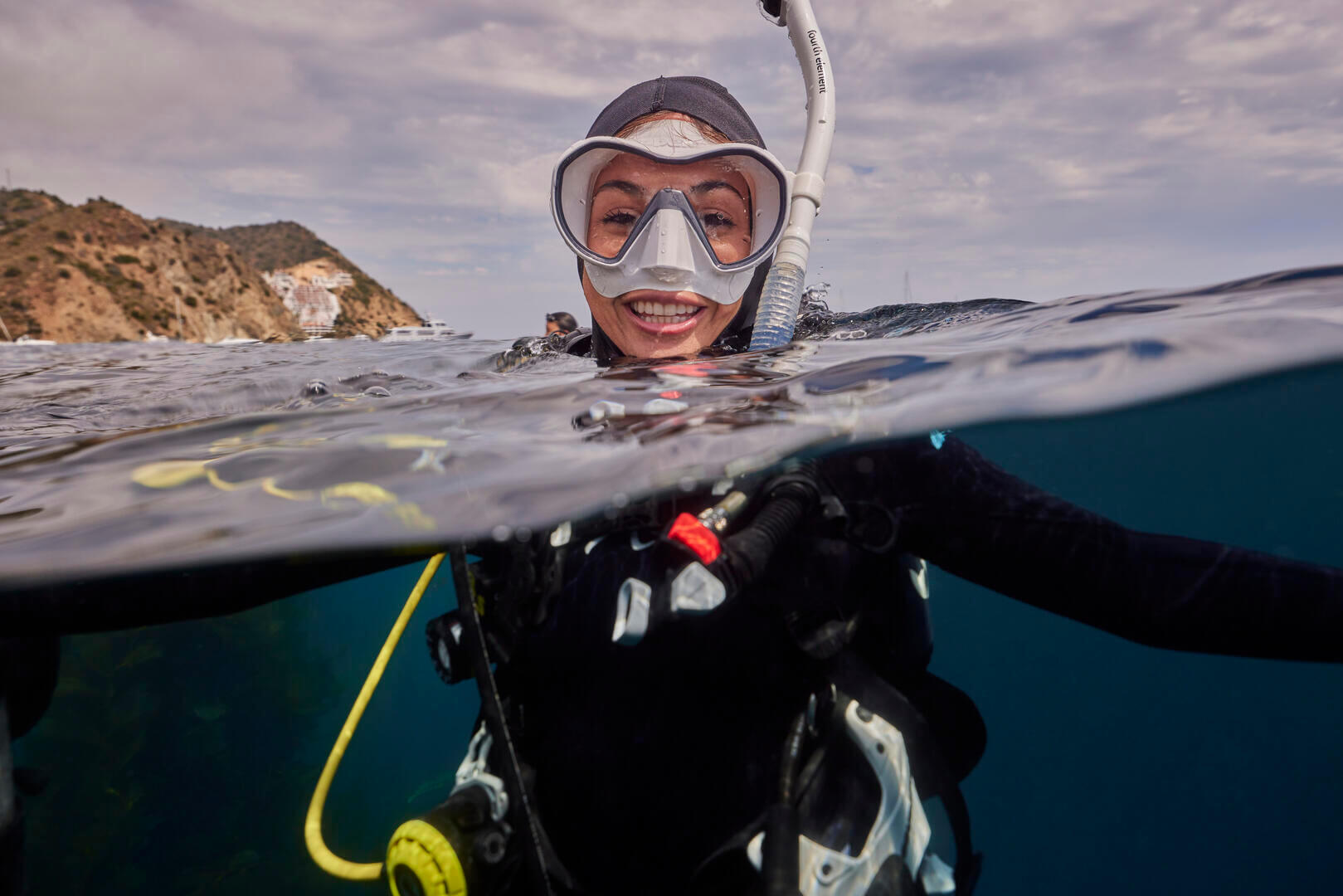
The PADI Open Water Diver course is the first of PADI’s core courses and the first scuba certification level. Following the completion of the Open Water Diver course, participants are certified scuba divers and have the skills and knowledge to dive independently at home or abroad.
Prerequisites
Minimum Age: 15 years old Must be able to float or tread water without aids for 10 minutes Must be able to swim 200 meters/yards with no aids or 300 meters/yards with mask, fins and snorkelPost-Completion Restrictions
Maximum Depth: 60 feet (18 meters)Read More About the Open Water Diver Course
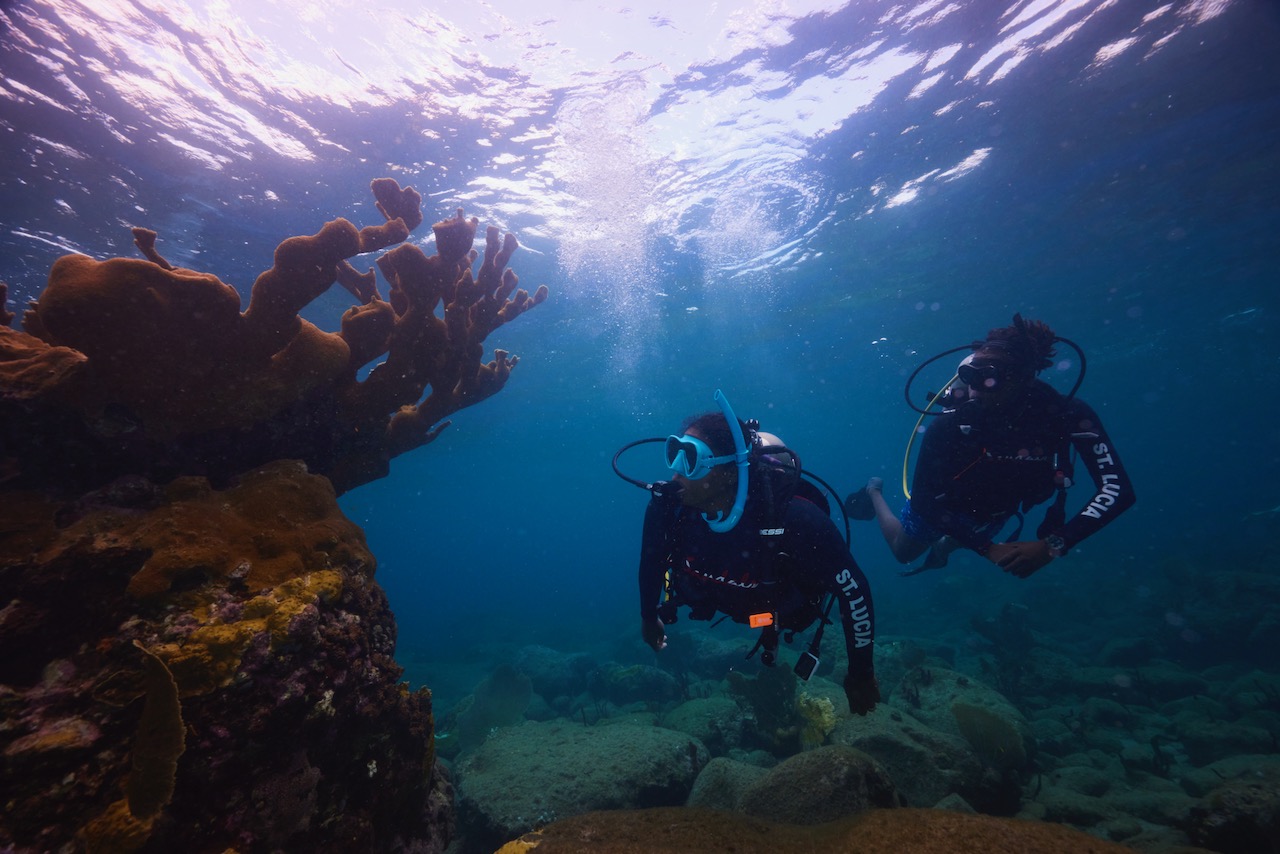
The PADI Scuba Diver course is a subset of the PADI Open Water Diver course. If you’re short on time but really want to become a diver, the PADI Scuba Diver rating might be right for you. You can then continue with your education to become a PADI Open Water Diver when time permits.
Prerequisites
Minimum Age: 15 years old Must be able to swimPost-Completion Restrictions
Maximum Depth: 40 feet (12 meters) Must dive under the direct supervision of a PADI ProfessionalRead More About the Scuba Diver Course
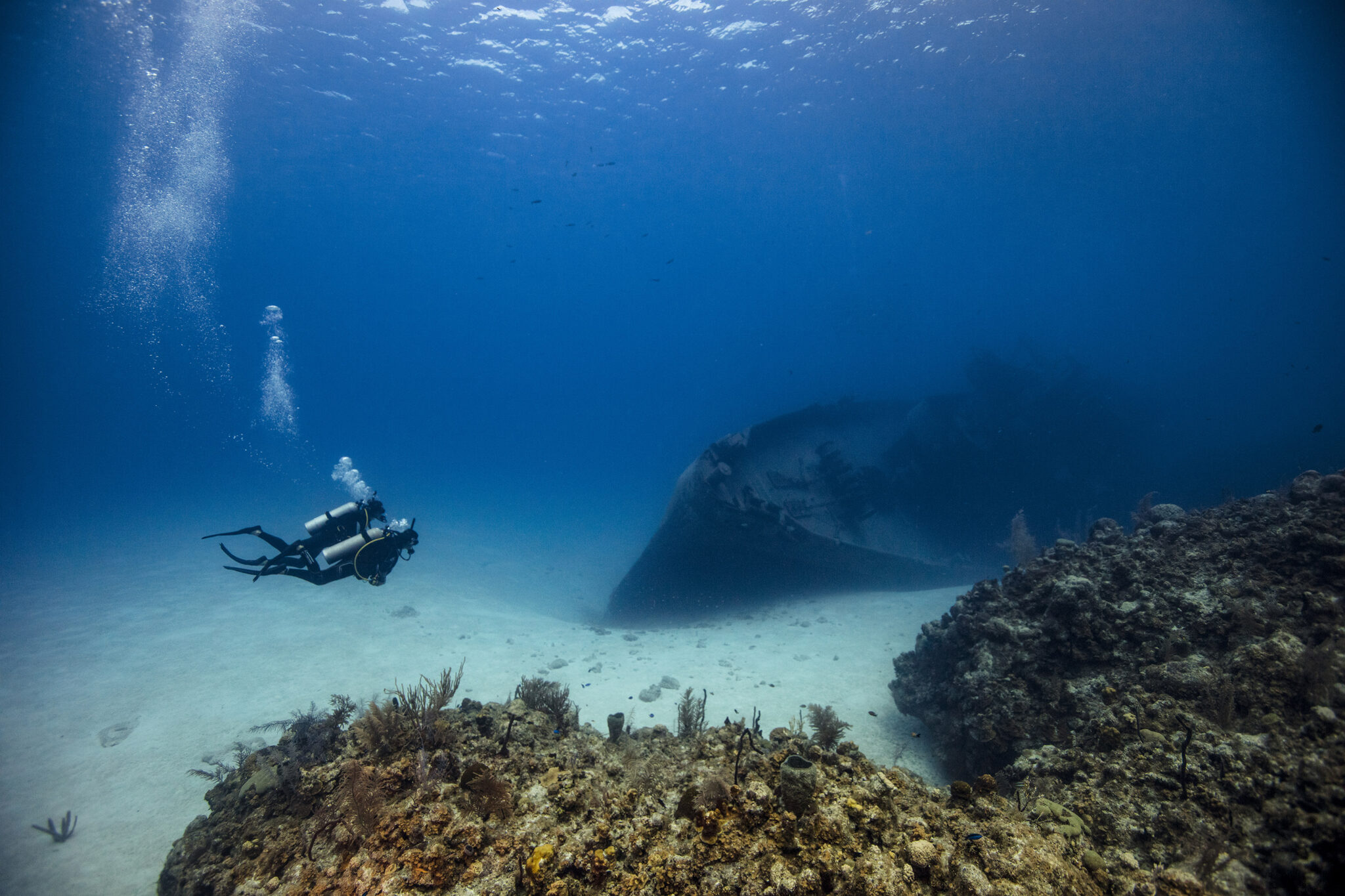
The PADI Advanced Open Water Diver course is all about honing scuba diving skills and exploring deeper depths. During the course, participants practice navigation and buoyancy, try deep diving and make three specialty dives of your choosing (it’s like a specialty sampler platter).
Prerequisites
Certification: PADI Open Water Diver/Junior Open Water Diver (or qualifying certification) Minimum Age: 12 years old for Junior Advanced Open Water Diver or 15 years old for Advanced Open Water DiverPost-Completion Restrictions
Maximum Depth for Ages 12 to 14: 70 feet (21 meters) Maximum Depth for Ages 15+: 100 feet (30 meters)Read More About the Advanced Open Water Diver Course
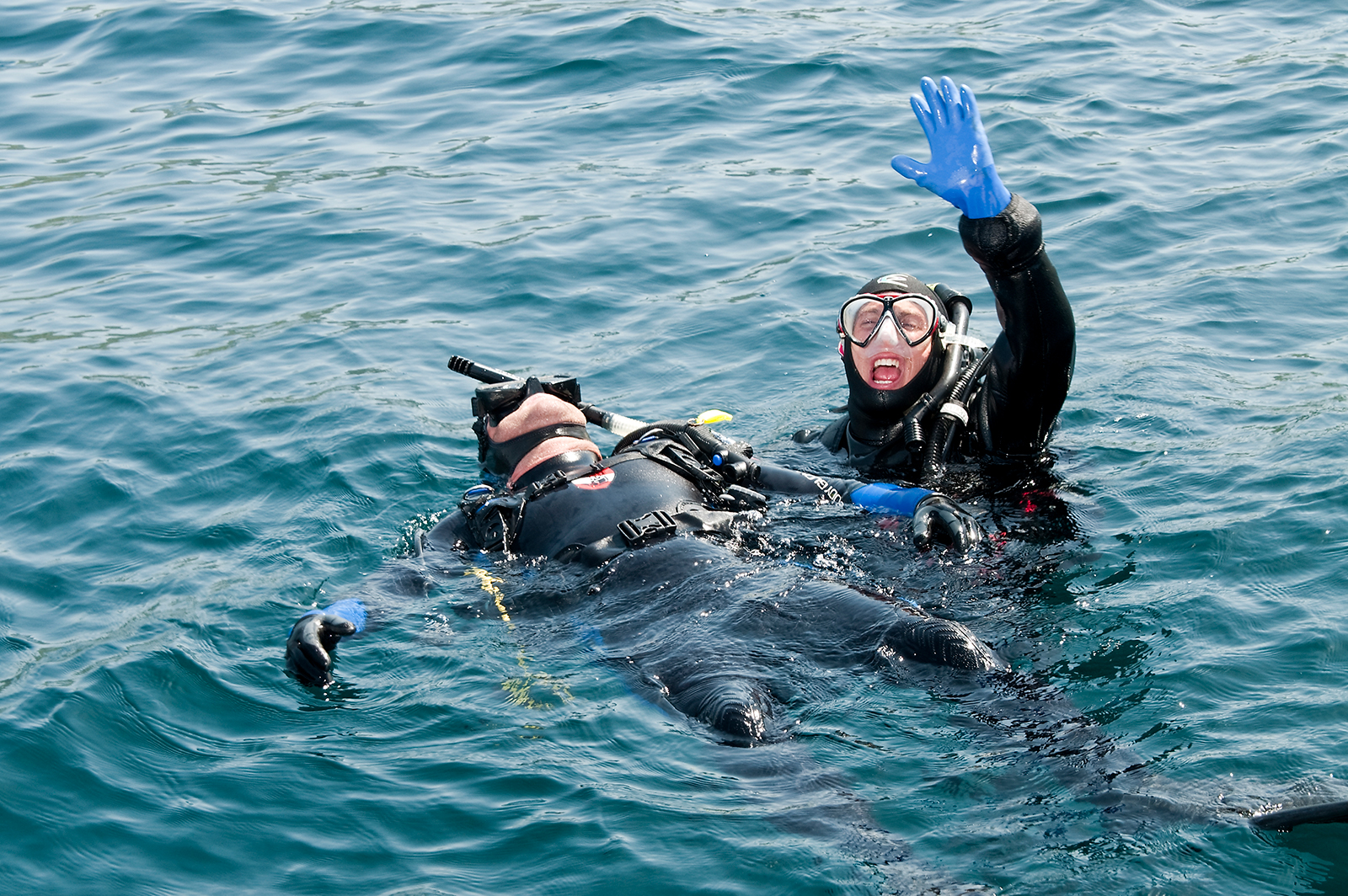
The PADI® Rescue Diver course will change scuba divers – in the best possible way. Participants will learn to identify and fix minor issues before they become big problems, gain a lot of confidence and have serious fun along the way.
Prerequisites
Certification: PADI (Junior) Adventure Diver with a completed Underwater Navigation Dive OR PADI Advanced Open Water Diver/Junior Advanced Open Water Diver (or qualifying certification) Emergency First Response Primary and Secondary Care training (or qualifying training) within 24 months Minimum Age: 12 years old for Junior Rescue Diver or 15 years old for Rescue DiverPost-Completion Restrictions
Maximum Depth: Depends on prior certification levelRead More About the Rescue Diver Course
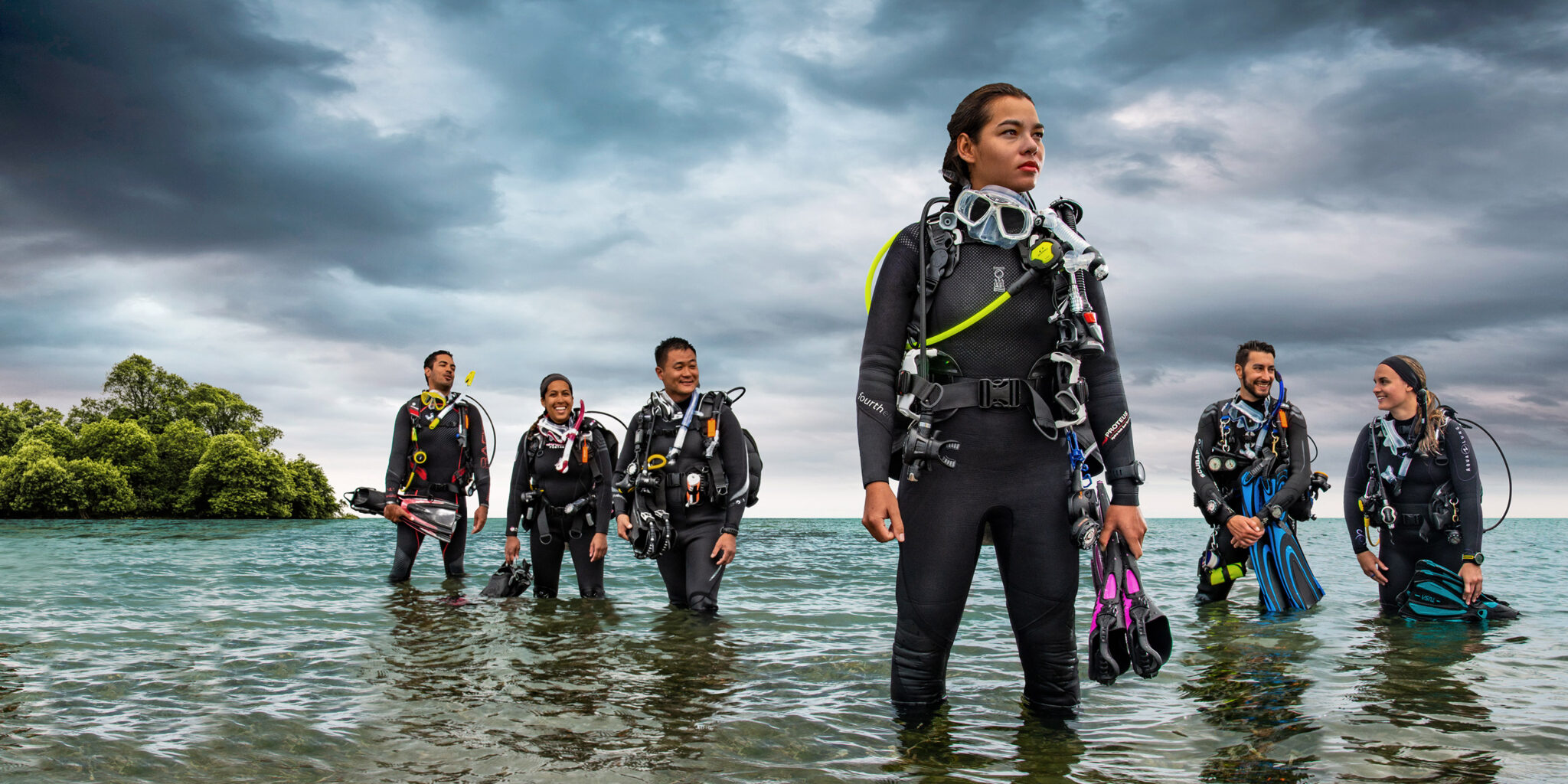
PADI Divemaster is the first professional level of scuba diving. Candidates will learn how to lead underwater tours, assist with scuba classes and inspire others to care about the ocean.
Prerequisites
PADI Advanced Open Water Diver and PADI Rescue Diver certifications (or qualifying certification) Emergency First Response Primary and Secondary Care training (or qualifying training) within 24 months 40 logged dives Medically evaluated and cleared for diving by a physician within the past 12 months Minimum Age: 18 years oldPost-Completion Restrictions
Maximum Depth: Depends on previous certification Can lead certified divers on guided dives Can assist PADI Instructors with various training activitiesRead More About the Divemaster Course
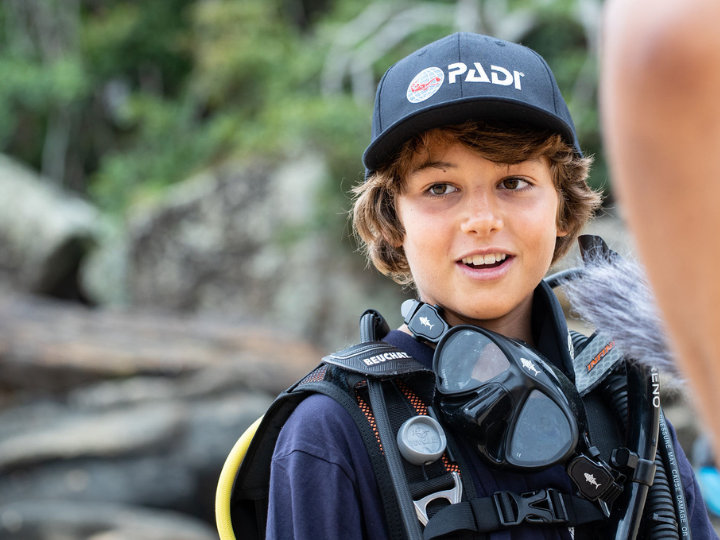
The PADI Junior Divemaster course is a sub-set of the PADI Divemaster course. Junior Divemaster candidates may complete a significant portion of the divemaster course, but additional training is required when the Junior Divemaster turns 18.
Prerequisites
PADI Advanced Open Water Diver and PADI Rescue Diver certifications 20 logged dives Medical clearance to dive Minimum Age: 15 years oldPost-Completion Restrictions
Maximum Depth: Depends on previous certification Not permitted to guide other certified divers or assist with scuba diving instruction until the full PADI Divemaster course is completed following the candidate’s 18th birthday.Read More About the Junior Divemaster Course
Although we’ve explored many of the most popular PADI certification courses and their prerequisites and restrictions above, there are still other possible PADI diving restrictions. For example, different depth limits may apply to divers who have completed the PADI Deep Diver Specialty course or any of the PADI TecRec courses.
In addition, some locations may have further restrictions on depth, equipment usage, dive insurance and more. Be sure to always follow all local guidelines and restrictions. If you have any questions, get in touch with your local PADI Dive Center.
If you’re thinking about bumping up your certification level, be sure to visit our website and sign up for your next course! Whether you’re going to Advanced Open Water Diver or just getting past Discover Scuba Diving, there is always room to grow and improve.
Start Your Next eLearning Course Now
Share This